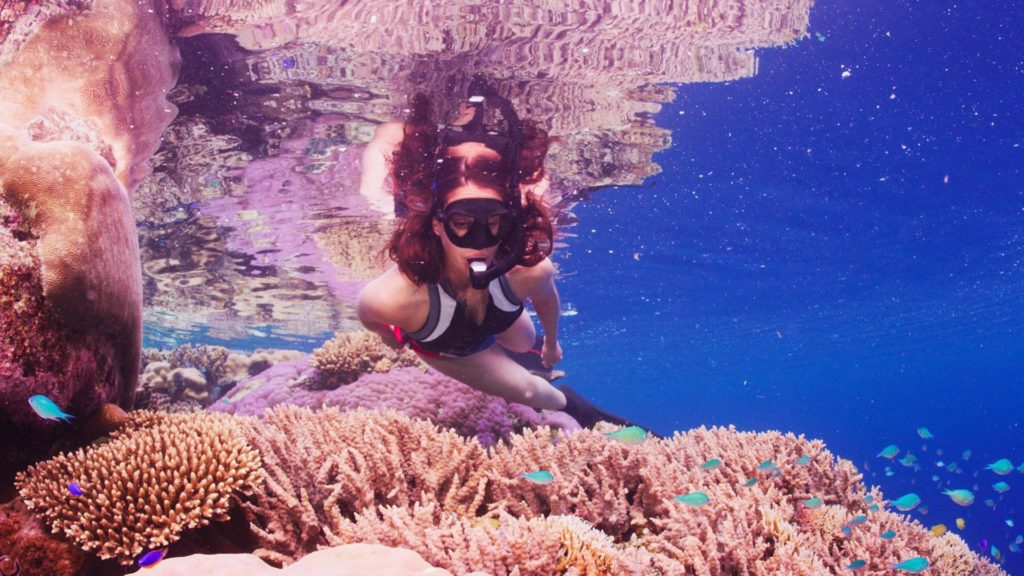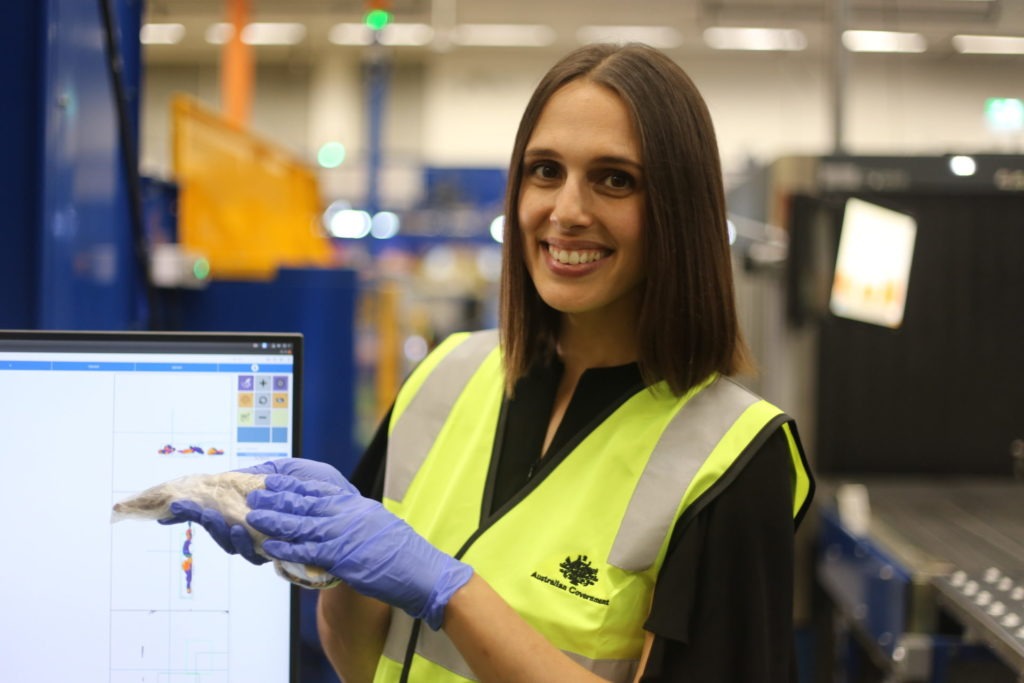Dr Vanessa Pirotta always wanted to do some kind of work involving the oceans. Despite growing up just outside of Canberra, she developed a passion for dolphins and whales early on.
And she also knew that she wanted to make a difference, which meant that being able to communicate whatever field she went into would be essential.
Dr Pirotta has brought all these skills together and more in her work as a wildlife scientist, science communicator and innovator around wildlife conservation.
******
Check out the STEM Wrap, our weekly newsletter for women in STEM.
Her 2019 TedX session on whale snot — which examines how some of the world’s smallest organisms can be used to support research efforts around the world’s largest organisms — has been viewed and shared all over the world, highlighting her clear ability to speak and present that can get so many more excited about the ocean.
Dr Pirotta has represented Australia internationally as the winner of the world-renowned science communication competition known as FameLab (she placed second). She is also a Superstar of STEM and has participated as a marine mammal expert at the United Nations Food and Agricultural Organisation.
We asked Dr Pirotta to share a little more about how and why she does what she does, for our weekly special featuring the work and careers of women across STEM fields.
In one sentence, how do you describe what you do?
I use innovative technologies for wildlife conservation and communicate science to school students and the general public.
What put you on the path to be doing this work?
It’s definitely in the area I thought I would be! As a young girl growing up on a farm outside of Canberra I always wanted to do something with the ocean, particularly with whales and dolphins. From a very young age I was passionate about wanting to make a difference, I just didn’t know how this would look. Thankfully, I’ve been extremely fortunate to have followed my dreams and worked hard to have had the opportunities in STEM.
My PhD in marine science is a product of this and my turning point where I’ve been able to grow as a scientist and acquire transferable skills.
This has given me a platform to lead collaborative international research projects and use home grown Australian innovative technologies for whale research. I’ve since been able to use these transferable skills for other exciting research projects such as investigating innovative technologies in the fight against illegal wildlife trafficking. Along the way, I’ve been able to share my work internationally at conferences and through the media.

This is important as a scientist as I feel we have a role in communicating science to the general public to connect people who might not be aware about the things we do. Even if it is just a few seconds of their day to learn about amazing new findings we have made, that’s bound to make a difference. Being a spokesperson for science is incredibly important for younger minds to see women doing interesting things, whether it be science communication about whale snot or driving boats, it all helps.
What drives the hard work that you do, your incredible passion for the ocean and your desire to be an instigator of change?
My passion is the driver of everything I do. I’m motivated by what I love. The environment and wildlife, especially whales, is something that keeps me wanting to learn more. Along the way, I’m able to do research, interpret data and communicate findings by making science accessible to many.
I’ve found telling a story makes the work I do interesting and a way I’m able to connect with people beyond the scientific world. People are eager to learn about science and I want to help facilitate their interests by using the skills I’ve acquired throughout my STEM career path. I do hope my work in the science world is making a difference and continues to present new and exciting opportunities.
Is there anything specific you can point to that has been pivotal in supporting your STEM career? A key mentor, sponsor, a particular course, chance encounter etc?
I’ve been fortunate to have had amazing support team throughout my STEM journey. My mentors have always had a positive can-do attitude which has enabled me to take on opportunities I thought I’d never be able to do.
This has taken me to amazing places around the world for whale research such as Tonga, Antarctica and Madagascar. I’ve also been encouraged and supported to pivotal moments in my career such as travelling to the United Nations Food and Agriculture Organization in Rome to speak as a marine mammal expert. Another has been representing Australia on the international stage talking about my PhD research as part of FameLab, the World’s biggest science communication competition. To this day, I’m amazed and grateful for these opportunities.
What more needs to or can be done to support more women in STEM?
We need women in STEM to be visible and accessible to young minds to connect with. This is incredibly powerful for school students and refreshing for parents who want their children to see women in diverse roles.
Women in science need to feel supported at any stage of their career. This can be challenging, especially for those like myself with young children. This can be made easier if those around them are supportive, adaptable and encouraging.
Is there any key tip you can share for other women in STEM?
Take a moment to think about what led you to being a woman in STEM. Celebrate the small wins and keep an open mind when new opportunities arise.
******
Check out the STEM Wrap, our weekly newsletter for women in STEM.


